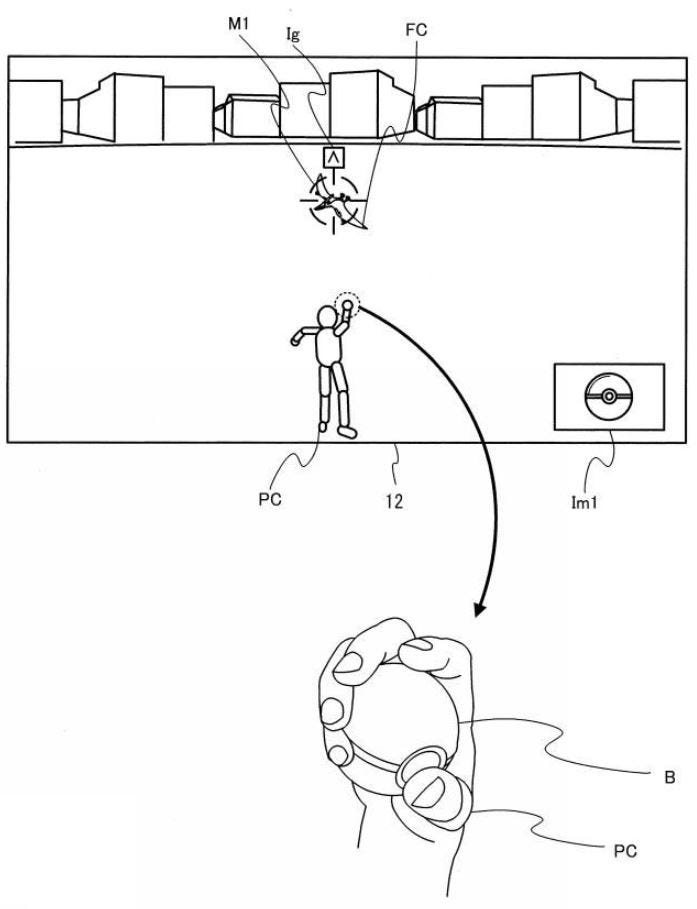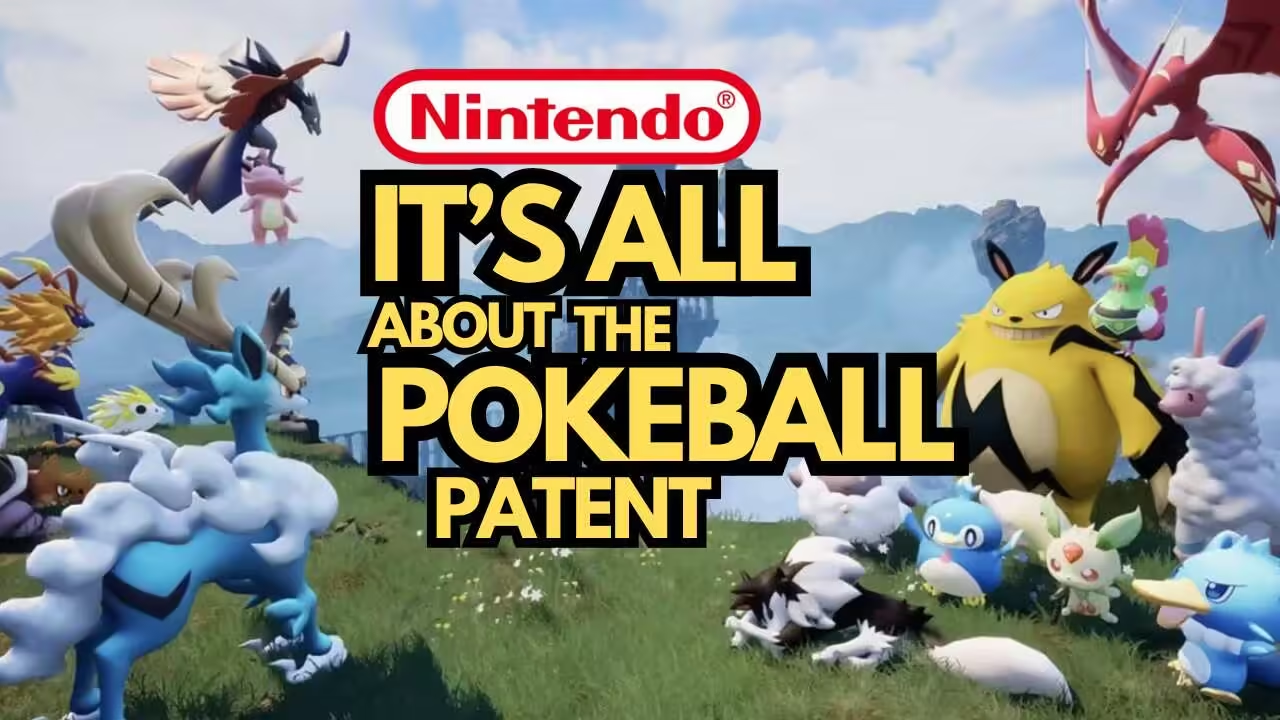In a stunning move, Nintendo and The Pokémon Company have launched a legal battle against Pocketpair, the creator of the popular game Palworld, citing the infringement of “multiple” patents.
While the exact patents have not been fully disclosed, speculation points to a specific patent regarding how players throw Pokéballs in the game, an iconic element of the Pokémon franchise. This lawsuit could have wide-ranging implications for game developers and the future of Palworld itself.
It’s all about The Pokéball-Throwing Patent
At the center of this legal confrontation is a recently filed patent that Nintendo and The Pokémon Company claim protects their Pokéball-throwing mechanics. Filed in the summer of this year, this patent specifically outlines the process in which a player catches a Pokémon by aiming and throwing a capture item, like a Pokéball, at a creature. Upon a successful throw, the captured creature then becomes owned by the player.
In Palworld, the mechanics are strikingly similar. Players throw an item called the Pal Sphere to catch creatures in the game, with ownership transferring to the player upon capture. This similarity is where the core of the legal conflict lies, as it potentially breaches Nintendo’s intellectual property.
One of the most compelling aspects of this case is that this newly filed patent isn’t standalone. According to Japanese patent attorney Kiyoshi Kurihara, this summer’s patent is attached to a “parent” patent originally filed in December 2021. This is significant because Palworld had not yet launched at the time, meaning Nintendo could argue that they had already established ownership of this gameplay mechanic before Palworld was even on the market.

Kurihara, who spoke with Yahoo Japan, noted that the Pokéball-throwing patent could be considered a “killer patent.” This means that it would be very difficult for other game developers to avoid infringement if they attempt to implement similar mechanics.
Nintendo’s Legal Strategy: Focus on Patents, Not Copyright
While the similarities between Palworld and Pokémon have been noted since the game’s release, much of the focus until now has been on the visual similarities between creatures in both games. However, Nintendo’s lawsuit appears to focus on patents rather than copyright infringement. By targeting the mechanics of capturing creatures, Nintendo is shifting the battlefield to a much more defensible legal area, as patents offer a stronger form of protection in this scenario.
Copyright isn’t the main issue here.
While many fans of both games have pointed out the similar monster designs, this would typically fall under copyright law rather than patent law. However, Nintendo seems to have deliberately avoided this angle, likely because design similarities can be subjective and difficult to litigate. Instead, focusing on patents allows Nintendo to protect something more concrete and measurable: the game mechanics that make Pokémon so unique.
Palworld’s Potential Legal Strategy: Fighting for Creativity
Despite the potential strength of Nintendo’s patent claims, Pocketpair has vowed to fight the lawsuit. In a public statement, the company expressed its intent to protect its creative freedom, framing the lawsuit as an attack on indie developers. Pocketpair sees the legal battle as an important stand not just for their game, but for other independent game developers who might face similar challenges from larger corporations.
The stakes are high for Pocketpair, as the outcome of this lawsuit could result in Palworld being removed from sale, either in Japan or globally. Such a decision would have massive ramifications for the company, especially considering that 25 million players tried Palworld during its initial launch phase. Losing access to key markets, like Japan, could hinder future growth, particularly with a PlayStation version of Palworld on the horizon.
Japanese Patent Law and Its Limits
One of the critical aspects of this legal battle is the jurisdictional limits of Japanese patent law. According to Lisa Phillips, an IP attorney with Fisch Sigler LLP in Washington DC, the reach of Japanese patent law ends at Japan’s borders. This means that even if Nintendo wins the case in Japan, it may not have an immediate effect on Palworld’s operations in other countries, particularly the United States.
However, Phillips also noted that Nintendo, which holds significant intellectual property rights in the U.S., could potentially bring a separate lawsuit against Pocketpair in the U.S. courts. This could prolong the legal battle and put Pocketpair under even more pressure.
What Happens Next?
While Pocketpair awaits more detailed information on the specific patents Nintendo is claiming, the gaming industry is watching closely. The fact that Nintendo requested an accelerated review process for their Pokéball-throwing patent earlier this year suggests that this lawsuit was anticipated well in advance.
Pocketpair’s public statement hints that the full details of the complaint have not yet been filed. Richard Hoeg, a video game legal expert, noted that typically, a defendant’s first notification in any lawsuit is the formal list of accusations. Until then, Pocketpair might only know that they are the target of the lawsuit, but not the precise patents in question.
As the case unfolds, it could set a precedent for how patent law is applied to game mechanics. If Nintendo succeeds, it could give them the power to control how certain interactive mechanics are used across the entire gaming industry, impacting indie developers and even larger companies who may have planned to incorporate similar gameplay features.
The implications of this lawsuit go beyond just Pocketpair and Palworld. If Nintendo successfully defends its patents in court, it could have a chilling effect on the development of Pokémon-like games. This would make it harder for indie developers to create games that share any similarities with Pokémon’s core mechanics, even if they bring their own unique twists to the genre.
For Palworld, the future remains uncertain. The game has seen a drop in interest since its explosive launch, but it still retains a dedicated fan base. With the PlayStation version in development and a growing partnership with Sony, Pocketpair may be able to weather this legal storm. However, a protracted legal battle could take its toll, both financially and creatively, on the company.

